|
Dear Colleagues,
I am pleased to include another issue of RFS Briefings with some timely and encouraging updates on women in science.
In case you missed it, The Genome Writers Guild (GWG) and Rosalind Franklin Society have joined forces again to recognize amazing scientists by awarding the Rosalind Franklin Medal. This award marries together GWG’s core objectives of facilitating genome writing conversation, collaboration, and exposure with the Rosalind Franklin Society’s goals of enabling more women to achieve higher recognition, visibility, appointments, and success in industry, academia, or government. The recipient of this award will embody the missions of both organizations. Submission deadline: May 15th.
Please continue to share important news and opportunities with us so that we may share it with you and others who are committed to supporting the careers of exceptional women in science.
Stay safe and sound,

Karla Shepard Rubinger
Executive Director
Rosalind Franklin Society
www.rosalindfranklinsociety.org

Celebrating DNA: Matthew Cobb’s Reflections on the Double Helix.
To celebrate DNA Day on April 25, GEN is highlighting this conversation with biologist and author Matthew Cobb, who reflected on the double helix's platinum anniversary. He talks to GEN about the discovery of the double helix, the legacy of Francis Crick, the role that Rosalind Franklin played in the process, and his most recent book, As Gods, which looks to the future—and the potential perils—of genetic engineering. Read more. Check out his RFS presentation here.
What Rosalind Franklin truly contributed to the discovery of DNA’s structure.
Franklin was no victim in how the DNA double helix was solved. An overlooked letter and an unpublished news article, both written in 1953, reveal that she was an equal player, according to Matthew Cobb and Nathaniel Comfort. “Getting Franklin’s story right is crucial, because she has become a role model for women going into science. She was up against not just the routine sexism of the day, but also more subtle forms embedded in science — some of which are still present today.” Read more.
Meet 10 Amazing Women Telling the Stories of Synthetic Biology.
These 10 women are helping tell the fascinating, mind-bending, inspirational – and sometimes bizarre – stories of synthetic biology. And through those stories, they inspire us to try new things, change our behaviors as consumers, and help us imagine a world built with biology. We're proud of the recognition of Julianna LeMieux, Deputy Editor-in-Chief at GEN. Read more.
The British physicist making women scientists visible online.
By day, Jessica Wade spends her time in a laboratory at Imperial College London surrounded by spectrometers, oscilloscopes—and men. At night, she writes biographies on Wikipedia about women researchers like her who don't have an online presence. Read more.
The Beacon Award for Women Leaders in Oncology.
The AIM-HI Beacon Award for Women Leaders in Oncology recognizes outstanding women leaders in all sectors of the health and life sciences industry who have made a significant impact on advancing cancer treatment, detection, and diagnosis for patients worldwide through the development and commercialization of novel technologies and/or implementation of public policy. The Nomination Deadline for the 2023 Beacon Award is Wednesday, May 31, at 11:55 PM Eastern time. Read more.
Medical Student Honored with Public Health Service Award.
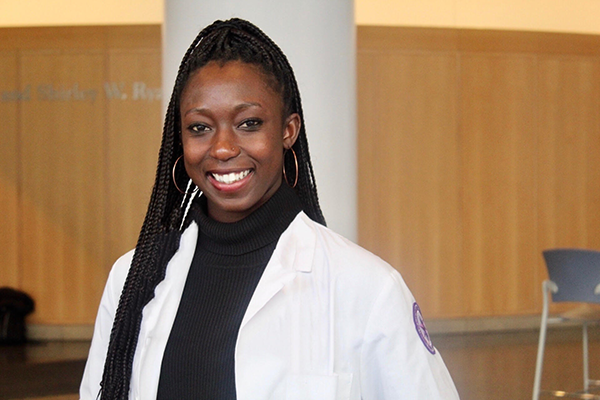
Precious Akanyirige, a fourth-year student in the MD/MPH degree program, has been awarded the 2023 Excellence in Public Health Award, given by the U.S. Public Health Service. This national award is given to medical students who have made significant contributions to the U.S. Public Health Service’s mission to “protect, promote and advance the health and safety of our nation,” and who help address public health issues in their community. Read more. Photo: Northwestern University.
Recently named cancer institute director may become head of NIH.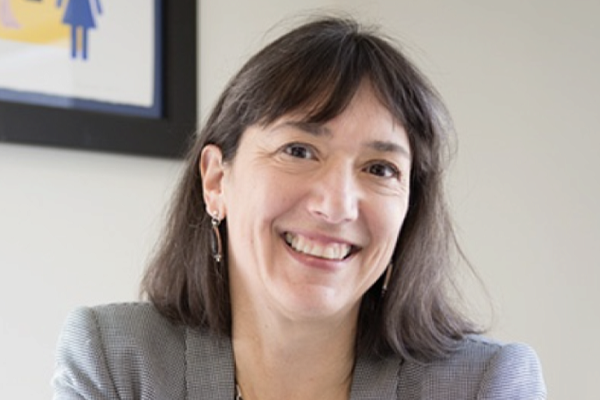
As a relative NIH newcomer, Monica Bertagnolli should bring a fresh perspective to an agency some critics have called staid. The physician-scientist would be only the second woman to lead the agency; she came to NCI after stints at Brigham and Women’s Hospital, the Dana-Farber Cancer Center, and Harvard Medical School. Read more. Check out her RFS year-end presentation here. Image: Monica M. Bertagnolli, M.D. Brigham and Women’s Hospital/NIH.
How I fused passions for art and medicine into a medical illustration career.
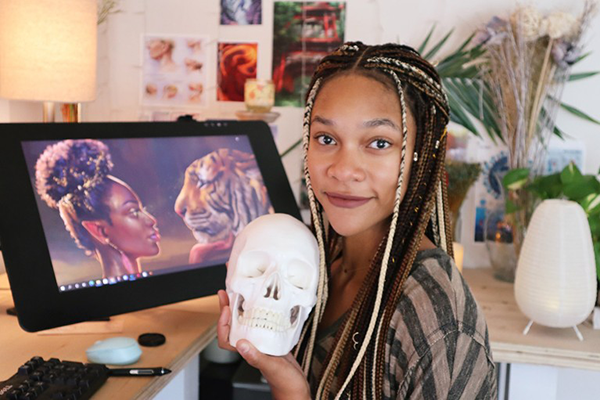
Hillary Wilson works as a freelance illustrator, specializing in creating patient education materials using digital and physical drawing tools. She depicts diverse groups of people, aiming to address racial and ethnic disparities in health care. Nature spoke to Wilson about how she found this career path, and why medicine and medical research need a more diverse pool of illustrators. Read more. Image credit: Hillary D. Wilson.
JoAnne Hewett Named Director of Brookhaven National Laboratory.
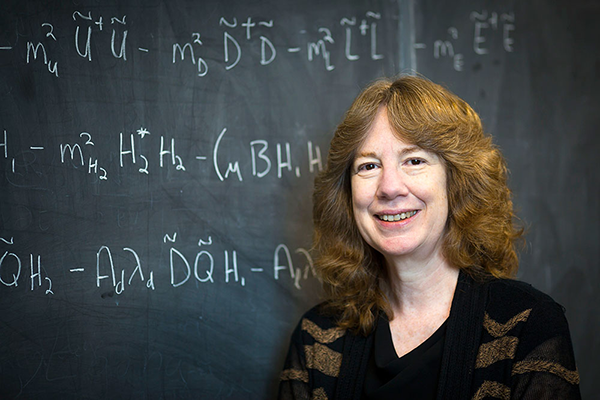
JoAnne Hewett comes to Brookhaven from SLAC National Accelerator Laboratory, where she most recently served as associate lab director (ALD) for fundamental physics and chief research officer. Hewett is a theoretical physicist. Her research probes the fundamental nature of space, matter, and energy. She is best known for her work on physics beyond the Standard Model of particle physics and how that might relate to experiments. Read more. Image: JoAnne Hewett (Photo courtesy of SLAC National Accelerator Laboratory)
Overlooked No More: Elizabeth Wagner Reed, Who Resurrected Legacies of Women in Science.
Reed made several discoveries in genetics and dedicated her career toward supporting women scientists. Yet she herself fell into obscurity. This article is part of Overlooked, a series of obituaries about remarkable people whose deaths, beginning in 1851, went unreported in The Times. Read more.
She Redefined Trauma. Then Trauma Redefined Her.
Dr. Judith Herman, a psychiatrist and pioneering researcher of trauma, has returned to publishing after a long, mysterious ordeal. She had her career on hold for two decades as she navigated her own chronic pain and several surgeries after an accident. Read more.
The CRISPR Journal.
Although the path to the clinic of CRISPR-based technologies has focused primarily on therapeutics, the road to most consumers is much more likely to be in the realm of diagnostics. CRISPR Journal presents a special issue dedicated to CRISPR Diagnostics. Read more.
Subscribe to our newsletter (RFS Briefings) at https://womeninscience.substack.com/
Written by Marianna Limas, Social Media Manager
Nilda Rivera, Partnership and Events Manager
|
|
|
Dear Colleagues,
I am pleased to include another issue of RFS Briefings with some timely and encouraging updates on women in science.
Make sure to review the Genome Writers Guild "call for nominations" here and on our homepage. Due date: May 15th!
Please continue to share important news and opportunities with us so that we may share it with you and others who are committed to supporting the careers of exceptional women in science.
Stay safe and sound,
Karla Shepard Rubinger
Executive Director
Rosalind Franklin Society
www.rosalindfranklinsociety.org

Professor Yasmine Belkaid appointed Institut Pasteur President.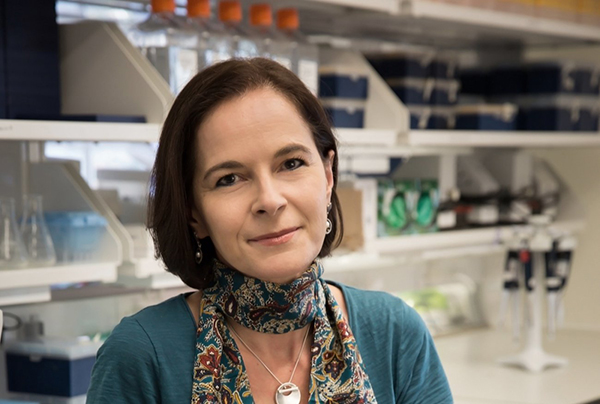
"Photo copyright: © DidierRouget"
A French Algerian born in Algiers in 1968, Professor Yasmine Belkaid is an internationally renowned scientist who has focused her research on the relationship between microbes and the immune system. She began her scientific journey with training in infectious diseases at the Institut Pasteur, and her career has since encompassed a wide variety of fields including parasitology, microbiology, medical entomology and virology, as well as tissue immunity, the microbiome and human immunology. Read more.
Biochemist Jennifer Doudna receives Kimberly Prize for role in CRISPR studies.
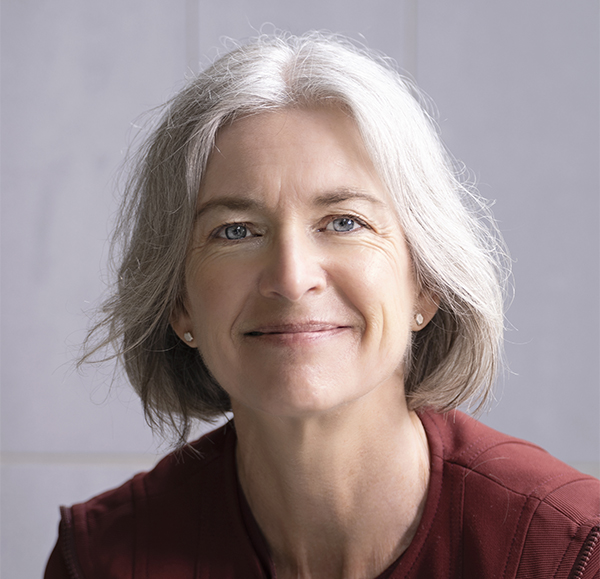
Biochemist Jennifer Doudna received the inaugural Kimberly Prize in Biochemistry and Molecular Genetics at the Robert H. Lurie Medical Research Center. The prize will be awarded annually to a scientist who has made “outstanding research contributions into the molecular basis of life with a direct demonstrated link of their discovery into clinic for the betterment of humankind.” Make sure to watch our earlier RFS interviews: A Conversation with Jennifer Doudna, 2020 Nobel Laureate and The State of Biotech with Dr. Doudna. Read more. Image by Christopher Michel (Wikipedia)
Interview: HIV scientist Kundai Chinyenze: ‘I looked at Mum’s hospital bed and swore: I’m going to become a doctor’
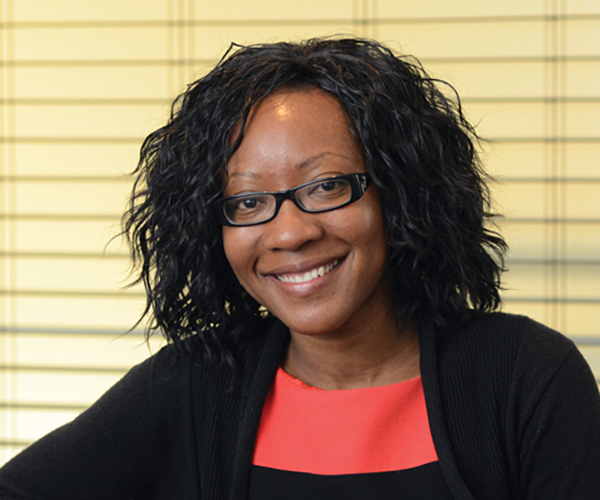
Kundai Chinyenze lost both her parents to Aids as a teenager in Zimbabwe. Nearly three decades later, the medical researcher leads a mission to find a vaccine. “If there’s anything we’ve learned, [it’s that] we are faster, and get to solutions faster, when we remove barriers. Science can never be in a vacuum. [We need] scientists to challenge, and feed off each other to come up with the best solutions and find answers to our problems.” Read more. Image: IAVI
Overlooked No More: Alice Ball, Chemist Who Created a Treatment for Leprosy.
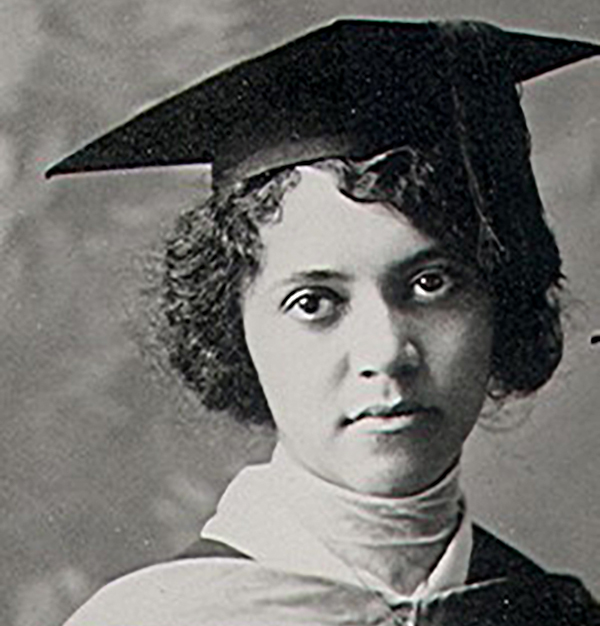 Alice Augusta Ball. Image credit: Wikipedia. Alice Augusta Ball. Image credit: Wikipedia.
Alice Ball was a Black chemist who developed a method for the treatment of leprosy that was widely used in the pre-antibiotic years of the 1920s and ’30s. Modified chaulmoogra oil, based on the Ball Method, was distributed worldwide and helped free countless people from isolated leper colonies. Read more.
Virginia Norwood, ‘Mother’ of Satellite Imaging Systems, Dies at 96.
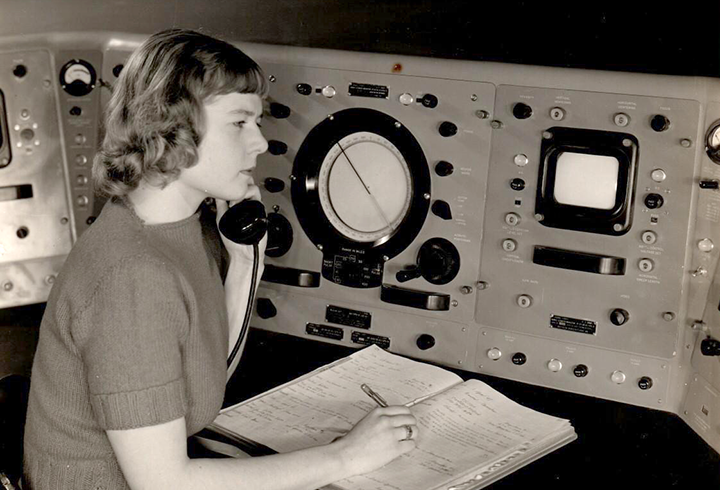
Virginia Norwood, an aerospace pioneer who invented the scanner that has been used to map and study the earth from space for more than 50 years, has died at her home in Topanga, Calif. She was 96. Ms. Norwood, a physicist, was the person primarily responsible for designing and championing the scanner that made the Landsat satellites possible. NASA has called her “the mother of Landsat.” Read more. Image: Wikipedia.
University of Groningen faces growing calls to reinstate sacked gender-equality researcher.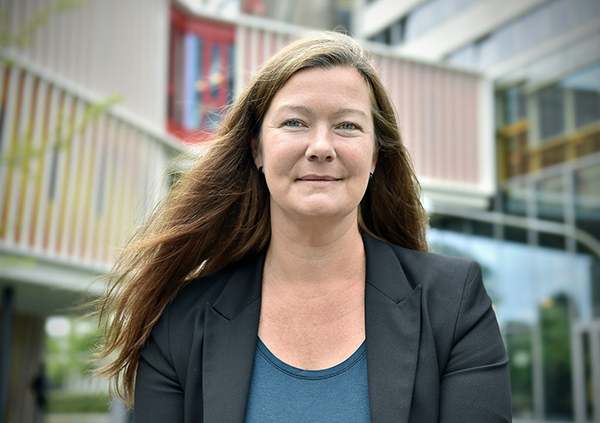
In 2018, Susanne Täuber made an official complaint that she had been passed over for promotion, arguing that she had as many published papers and research grants as colleagues who had been promoted above her. In March, a court ruled that the University of Groningen in the Netherlands could sack her, after it found that there was a “permanently disturbed employment relationship” between the two parties. Read more. Image: RUG
Chemistry’s history through the feminist lens.
Looking back on women’s history month, Vanessa Seifert has been thinking of the multifaceted ways that this commemoration can promote the equality of women, especially within chemistry. Bringing forward the stories of women like Tappūtī-bēlat-ekalle (‘history’s first chemist’) helps illuminate the fact that female chemists have been persistently neglected. Read more.
Subscribe to our newsletter (RFS Briefings) at https://womeninscience.substack.com/
Written by Marianna Limas, Social Media Manager
Nilda Rivera, Partnership and Events Manager |
|
Dear Colleagues,
I am pleased to include another issue of RFS Briefings with some timely and encouraging updates on women in science.
First, I want to call your attention to the call for Nominations just released!
The Genome Writers Guild (GWG) and the Rosalind Franklin Society have joined forces again to recognize amazing scientists by awarding the Rosalind Franklin Medal.
This award marries together GWG’s core objectives of facilitating genome writing conversation, collaboration, and exposure with the Rosalind Franklin Society’s goals of enabling more women to achieve higher recognition, visibility, appointments and success in industry, academia, or government. The recipient of this award will embody the missions of both organizations.
The Rosalind Franklin Medal will not only recognize the outstanding body of research of a woman in the field of genome engineering and nucleic acids research, it also offers a platform to share that work with members and colleagues worldwide of both organizations. The recipient will be an invited speaker at the Genome Writers Guild annual conference this summer and annual Rosalind Franklin Board Meeting and Colloquium later this year. We invite the nominations of women working in the fields of genome engineering and synthetic biology.
The researcher should be in an early stage of their career, including graduate students, post-docs and assistant professors. Nominees from all walks of genomics and nucleic acid research, including academia, industry, and government are welcome. Criteria used to identify the winner will include: scientific Impact; contribution to the fields of genome editing or nucleic acid research; contributions to equity, diversity, and inclusion; community outreach; and overall strength of support letter(s).
To nominate (or self-nominate):
● Send name, CV and/or Biosketch
● Brief statement of support/ justification for review context
Submit by May 15th:
● online: Here
Questions:
● Erin Nolan: [email protected] or
● Dr Shondra Pruett-Miller: [email protected]
Please continue to share important news and opportunities with us so that we may share it with you and others who are committed to supporting the careers of exceptional women in science.
Stay safe and sound,
Karla Shepard Rubinger
Executive Director
Rosalind Franklin Society
www.rosalindfranklinsociety.org

How RFS board member Nancy Hopkins and her tape measure revealed the extent of sexism in science.
Nancy Hopkins’s professional career has been partly defined by the ‘great men of biology’ she has worked with. But her actual legacy rests in her scientific achievements in cancer biology and zebrafish genetics — and in the attention she drew to discrimination against women in science, writes Alexandra Witze. Read more.
Emmy Murphy Is a Mathematician Who Finds Beauty in Flexibility.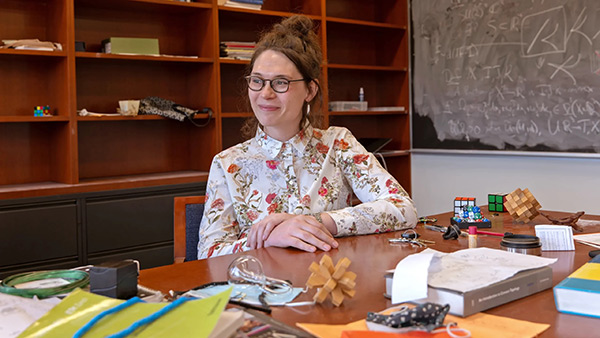
The daughter of a nurse and an industrial valve salesperson, Emmy Murphy was the first in her family to go to college. And she seriously weighed leaving academia after deciding, midway through graduate school, to come out as transgender. Quanta spoke with Murphy about geometric spaces and the spaces inhabited by mathematicians. Read more. Image: Caroline Gutman for Quanta Magazine.
Who was Justine Siegemund? Why a Google Doodle celebrates the groundbreaking midwife.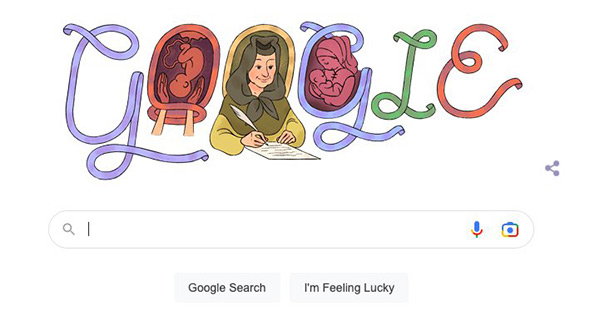
Justine Siegemund was a midwife who dared to challenge patriarchal attitudes in the 17th century. She was the first person in Germany to write a book on obstetrics from a woman’s perspective. In 1690, the European University Viadrina Frankfurt certified her book, The Court Midwife, as an official medical textbook. During a time when few women had access to formal education, Siegemund became the first woman to publish a seminal medical text in German. Read more.
The Forgotten Women Aquanauts of the 1970s.
Among the 80,000 images in the photo library of the National Oceanic and Atmospheric Administration is a picture that seems to beg for further explanation. Five smiling young women in matching short red wetsuits sit on the edge of an orange pontoon in the bright tropical sun. The enigmatic caption: “In 1970, all female team performed as well as males in scientific sat mission.” Read more.
The Women Working to Advance COVID-19 Research.
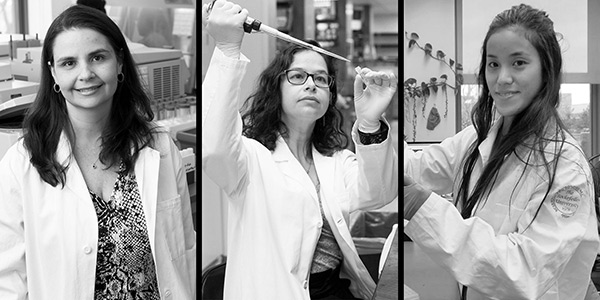
Bulgari has broadened its reach with their Women & Science Fellowship in COVID-19 Research. The program, set at New York’s The Rockefeller University, fosters the next generation of women in science by providing funding toward their research as they develop new therapies to combat COVID-19. From left to right: Marina Caskey, a Brazilian infectious diseases physician and scientist, leads the Bulgari-funded lab; Inna Ricardo-Lax, a virologist from Israel, is a research associate working to better understand the interaction between viruses, including COVID, cells; and Sandra Nakandakari, a graduate fellow originally from Peru, focuses on the activity of B cells, which are the immune system cells responsible for making antibodies. Read more.
Event provides forum for researchers to learn more about ARPA-H’s Open Broad Agency Announcement.
ARPA-H has opened its first Agency-wide Open BAA, seeking funding proposals for research aiming to improve health outcomes across patient populations, communities, diseases, and health conditions. On April 4, ARPA-H will host a Proposers’ Day for interested parties to learn more about the application process for the Open BAA and ask questions. Read more.
Submissions open for the ARPA-H Dash.
Everyone can share ideas for the most urgent health transformations, vote, and compete to have the best ideas win! The ARPA-H Dash to Accelerate Health Outcomes (ARPA-H Dash) is a collaborative and competitive online event designed to identify worthy and novel ideas for health transformation, along with the key scientific evidence that indicates the transformation is possible. You might also be interested in the recent presentation by ARPA-H Director Renee Wegrzyn at our year-end meeting. Read more.
Gold Humanism Scholars at the Harvard Macy Institute Program for Educators.
The Arnold P. Gold Foundation is sponsoring partial scholarships of $5,000 for up to two Gold Humanism Scholars at the Harvard Macy Institute 2023-2024 Program for Educators. They seek to support medical and nursing educators working to develop and enhance educational projects focused on achieving humanistic patient care that can be replicated across a variety of healthcare delivery settings. Read more.
Register now for GWG 2023: From Basic Biology to Commercial Technology, July 19-21, 2023.
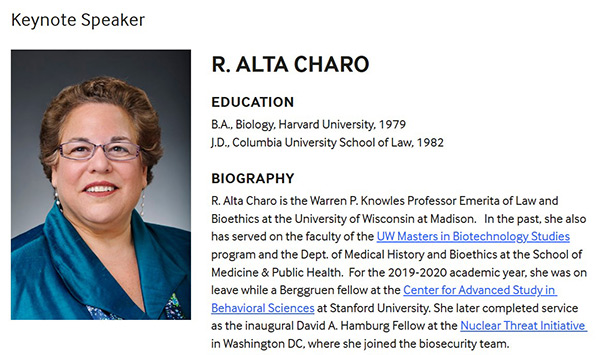
The Genome Writers Guild (GWG) and Rosalind Franklin Society have joined forces again to recognize amazing scientists by awarding the Rosalind Franklin Medal. Read more.
Season 5 of The Lost Women of Science podcast is live!
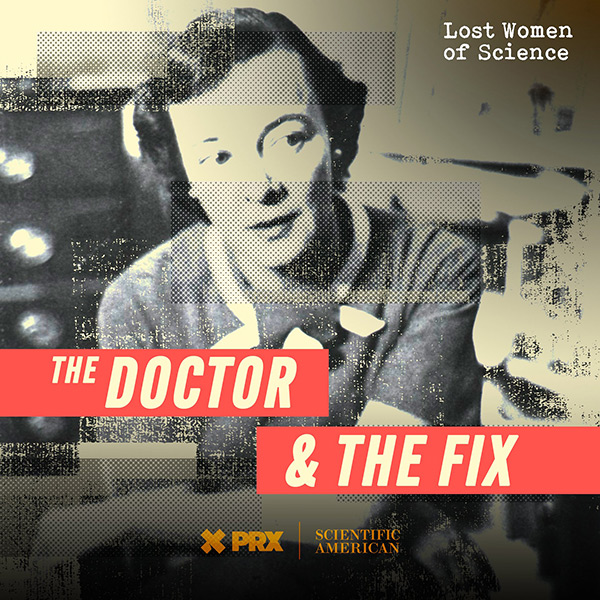
The first episode of "The Doctor and the Fix" is now available wherever you get your podcasts. In 1946, Marie Nyswander, a recent medical school graduate, joined the U.S. Public Health Service looking for adventure abroad. Instead, they sent her to Lexington, Kentucky’s Narcotic Farm, a prison and rehabilitation facility for people with drug addiction, where therapies included milking cows and basket-making. It was at Lexington that Marie encountered addiction for the first time, and what she saw there disturbed her—and reset her life’s course. Read more.
Innovative Genomics Institute’s HS Chau Women in Enterprising Science Program.
Each Fellow will be assigned mentors and advisors who can guide scientific and business practices by meeting with them regularly throughout the year. In addition, fellows will gain access to a Professional Advisory Board with leading venture capitalists to gain invaluable advice on their business model and pitch. Read more.
Maggie Aderin-Pocock: Nasa scientist inspired by appointment.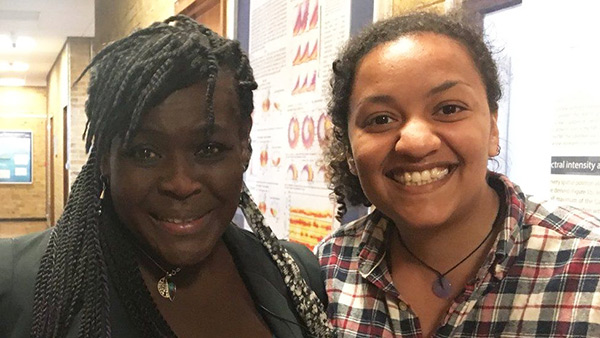
Dr Aderin-Pocock, who presents The Sky at Night, took on the role at the University of Leicester. Naomi Rowe-Gurney, 32, a former student at the university, said she had been inspired by Dr Aderin-Pocock's career. "I couldn't believe a black woman was on TV talking about space science," she said. Read more. (Image: University of Leicester)
Obituary: Beryl Rica Benacerraf.

"Copyright © 2023 Courtesy of Peter Libby",
Beryl Rica Benacerraf was a renowned radiologist and pioneer of ultrasound in antenatal diagnosis. She was born in New York, NY, USA, on April 29, 1949 and died of cancer in Cambridge, MA, USA, on Oct 1, 2022 aged 73 years. Read more.
More female researchers than ever migrate internationally.
A new study found that the pattern of mobility between men and women differed by nation. In most nations, including the United Kingdom and the United States, more male researchers moved country than did their female counterparts; South Korea and Pakistan were among those with the largest gender disparities for mobility. The United States remains the most popular destination for both female and male researchers who move country, according to the February study. The authors say that the nation is perceived as more supportive of female academics than elsewhere. Read more.
Subscribe to our newsletter (RFS Briefings) at https://womeninscience.substack.com/
Written by Marianna Limas, Social Media Manager
Nilda Rivera, Partnership and Events Manager
|
|
Dear Colleagues,
I am pleased to include another issue of RFS Briefings with some timely and encouraging updates on women in science.
Although every month is Women's History month for us, we primarily focus on women making history. Hopefully you do too.
Please continue to share important news and opportunities with us so that we may share it with you and others who are committed to supporting the careers of exceptional women in science.
Happy Women's History month,
Karla Shepard Rubinger
Executive Director
Rosalind Franklin Society
www.rosalindfranklinsociety.org

Nancy Yao Named First Director of the New Smithsonian American Women’s History Museum.
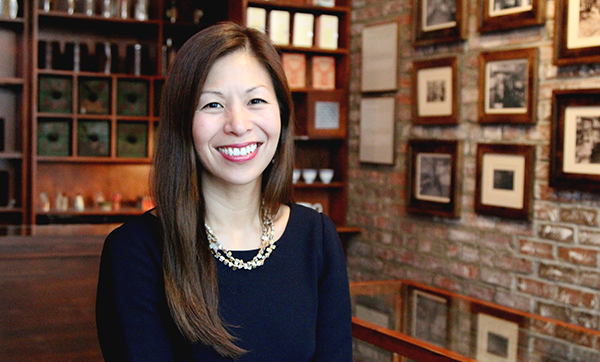
Nancy Yao has been named the founding director of the Smithsonian American Women’s History Museum, effective June 5. As founding director, Yao will oversee the conception and development of a 21st-century museum, including sourcing a national collection, curating permanent and current exhibitions, and creating educational resources accessible virtually before the physical museum is built in Washington, D.C. Read more.
Editorial: Celebrate women in science — today, and every day.
International Women’s Day (March 8) can serve to bring hope, highlight progress, and inspire research communities to continue their efforts to push hard for true gender equality. Women in science still, on average, publish less and win fewer grants and promotions than do men. Harassment, assault and marginalization drive promising researchers out of science, especially those whose race, ethnicity, disability or sexual orientation makes them targets for discrimination. Read more.
Lost Women of Science.
For Women’s History Month, we're celebrating the Lost Women of Science, a new initiative that tells the remarkable stories of groundbreaking women who never got the full recognition they deserved – until now. We recently spoke to Katie Hafner, Host/Executive Producer, and Amy Scharf, Executive Producer, check out the discussion at Lost Women of Science: Found, and Lost Women of Science Soon To Be Found.
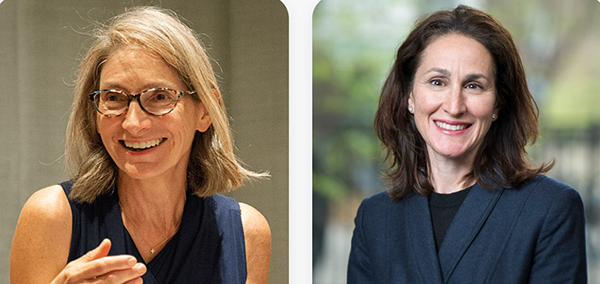
Katie Hafner, Host/Executive Producer, and Amy Scharf, Executive Producer of Lost Women of Science.
The Enduring Grip of the Gender Pay Gap.
The gender pay gap has barely closed in the U.S. in the past two decades. In 2022, American women typically earned 82 cents for every dollar earned by men. This was about the same as in 2002, when they earned 80 cents to the dollar. Read more.
Faculty Scholar Alum Jodi Halpern Brings Message of Empathic Curiosity to Major South American Science Conference.

In January, Greenwall Faculty Scholar Alum Jodi Lauren Halpern, MD, PhD, traveled to Santiago, Chile to give a keynote address to the Congreso Futuro titled, “The Power of Empathic Curiosity in a Divided World.” Prof. Halpern describes the exploration of empathic curiosity as her “life’s work” at the intersection of psychiatry and philosophy. Read more.
I used to dream of having a doll that looked like me. I hope this Barbie inspires girls to dream bigger.
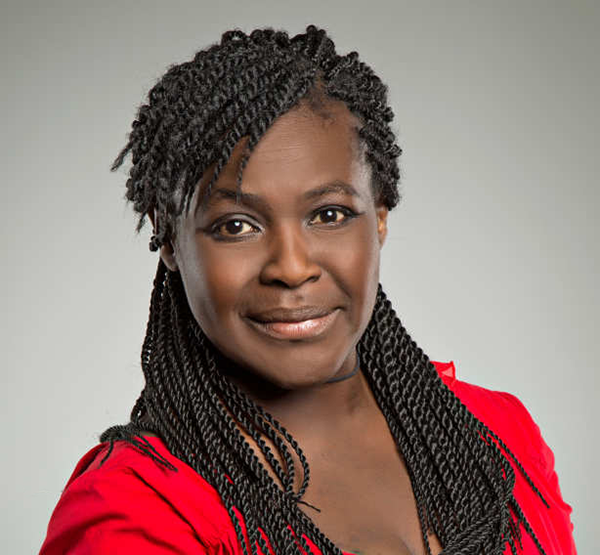
“The Barbie modeled on me is a space scientist with her own telescope. Girls should be shown that anything is possible,” writes Dr. Maggie Aderin-Pocock, a space scientist and presenter of the BBC’s The Sky at Night. In 2023, the iconic Barbie name represents women of all shapes and sizes. “Long gone are the unrealistic, and often frightening, beauty standards characterized by the early dolls. In their place, real-life doctors, marine biologists and astronauts are the new aspirational ideals.” Read more. Image: Imperial College London.
Meet the 2023 McNulty Prize Catalyst Fund awardees.
The McNulty Foundation and the Aspen Institute announced the 2023 recipients of the McNulty Prize Catalyst Fund, awarded annually to early-stage organizations that have demonstrated significant momentum with innovative models of change. This year, a total of $100,000 will be awarded across five promising leaders hailing from the United States, India and Lebanon. Read more.
Now open for submissions: Apply today for the Eppendorf & Science Prize for Neurobiology 2023!
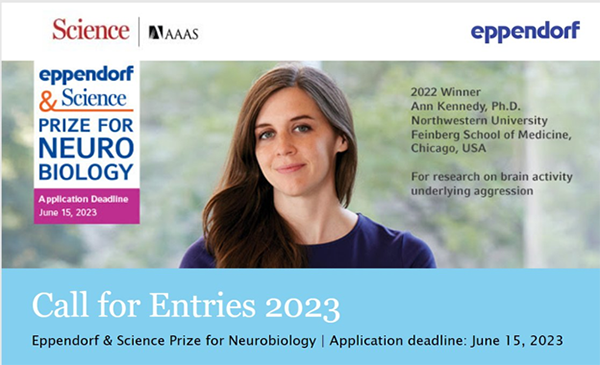
The international Eppendorf & Science Prize for Neurobiology is awarded annually to one young scientist who is not older than 35 years for the most outstanding neurobiological research based on methods of molecular and cell biology conducted by him/her during the past three years. Read more.
Guess Which Sex Behaves More Erratically (at Least in Mice).
A new study finds male mice more unpredictable than females, challenging century-old assumptions used to exclude females from research because of their hormones. Read more.
A “Woman of Firsts” Who Transformed Medical Testing.
“Millions of people who have undergone lab tests over the last 60 years are fortunate that Rosalyn Yalow ignored her parents’ career advice,” writes Leslie Mitchell. “As a college student in the 1930s, Yalow had her heart set on becoming a physicist, a profession almost no women entered then. Her parents, whom she viewed as “more practical,” urged her to follow the conventional route for intelligent young women and become a schoolteacher.” Read more.
ARPA-H signals it’s open for business with range of new initiatives.
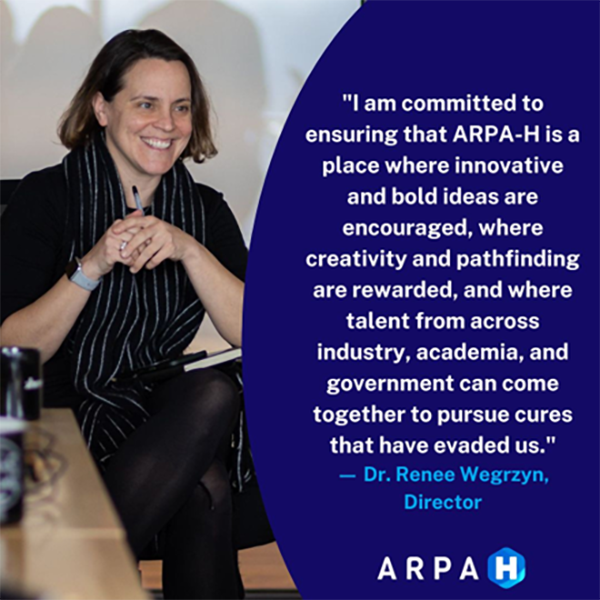
“Through our Agency-wide Open BAA solicitation, site selection strategy, and ARPA-H Dash competition, we have opportunities to immediately start funding, opening the door to catalyze the entire health ecosystem,” says Dr. Renee Wegrzyn, who was an RFS speaker at our year-end conference. Read more.
AAI Congratulates Recipients of 2023 Intersect Fellowships for Computational Scientists and Immunologists.
The AAI Intersect Fellowship Program for Computational Scientists and Immunologists provides independent research scientists with one year of salary support for postdoctoral fellows trained in basic bench research to undertake one year of training in computational science, or postdoctoral fellows trained in computational science to spend one year in an immunology research lab to learn basic immunological principles and laboratory techniques. Read more.
Subscribe to our newsletter (RFS Briefings) at https://womeninscience.substack.com/
Written by Marianna Limas, Social Media Manager
Nilda Rivera, Partnership and Events Manager |
|
Dear Colleagues,
I am pleased to include another issue of RFS Briefings with some timely and encouraging updates on women in science.
Please continue to share important news and opportunities with us so that we may share it with you and others who are committed to supporting the careers of exceptional women in science.
Stay safe and sound,
Karla Shepard Rubinger
Executive Director
Rosalind Franklin Society
www.rosalindfranklinsociety.org

Women at the center.
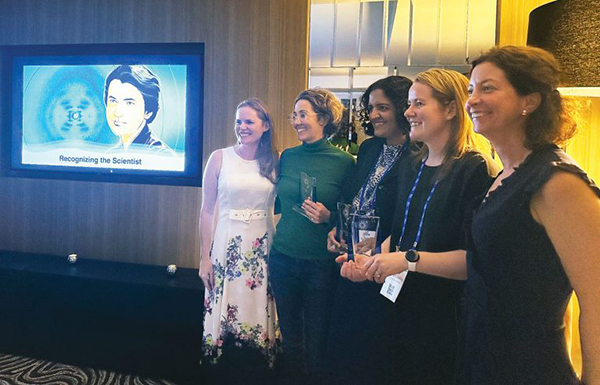
At AGBT 2023, the Rosalind Franklin Society and Rosalind, a software company, inaugurated the Women Changing Science awards program. It recognizes women who not only produce outstanding science, but who also dedicate themselves to supporting other women in the genomics community. The four winners this year were (in alphabetical order) Aruna S. Ayer, PhD, BD Biosciences; Julia Kennedy-Darling, PhD, Akoya Biosciences; Pardis Sabeti, MD, PhD, Broad Institute; and Yan Zhang, PhD, Mission Bio. In this image, award presenters flank three of the winners: Sabeti, Ayer, and Kennedy-Darling stand second, third, and fourth from the left. Read more.
COVID expert Angela McLean is UK’s new chief scientific adviser.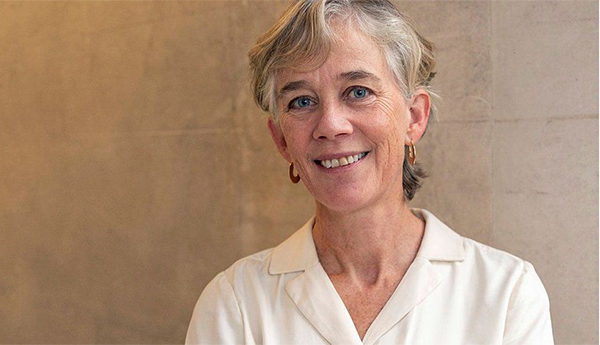
Angela McLean, a mathematical biologist who helped to build models to study the spread of COVID-19, has been appointed as the UK government’s next chief scientific adviser. She will be the first woman to hold the role since it was created in 1964. She will take over from Patrick Vallance on 1 April. Read more. Image: Gov.uk
Women’s Venture Competition.
The annual AIM-HI Women’s Venture Competition provides critical early-stage funding for women entrepreneurs in oncology. The winning company receives up to a $1 million equity investment from AIM-HI and co-investors, subject to due diligence and negotiations, to fund pre-clinical investigations. Ultimately, this financing helps to bring next-generation therapeutics, diagnostics, and prevention technologies to patients. Apply by March 15. Read more.
The V Foundation announces a grant program to increase female representation in cancer research.
In an attempt to combat inequities in funding, the V Foundation, a major cancer research charity, established a new grant program aimed at increasing the representation of women and women-led innovation in cancer research. A Grant of Her Own: The Women Scientists Innovation Award for Cancer Research is one of a few grant programs designed to address gender inequities in cancer research funding. The foundation will give $8 million or more in grants to outstanding women researchers at various stages in their careers. Read more. (Image by The V Foundation)
Unlikely Rebels With a Very Good Cause.
Bonnie Garmus (author of Lessons in Chemistry) reviews Kate Zernike's "The Exceptions: Nancy Hopkins, MIT, and the Fight for Women in Science." The Exceptions centers on the life of Nancy Hopkins, a reluctant feminist (and an RFS board member) who became the leader of the sixteen and a hero to two generations of women in science. Hired to prestigious universities at the dawn of affirmative action efforts in the 1970s, Dr. Hopkins and her peers embarked on their careers believing that discrimination against women was a thing of the past--that science was, at last, a pure meritocracy. Read more.
Life Biosciences Appoints Sharon Rosenzweig-Lipson, PhD as Chief Scientific Officer.
"Dr. Rosenzweig-Lipson brings great scientific and strategic leadership to Life Biosciences," said Jerry McLaughlin, Chief Executive Officer at Life Biosciences. "Sharon has been serving as a consultant to Life since early 2021 and has helped to create strong processes to accelerate our drug discovery and development. Read more.
Access to gene therapy for rare diseases when commercialization is not fit for purpose.
Claire Booth, MBBS, PhD, from University College London, is the corresponding author of the article in Nature Medicine titled “Access to Gene Therapy for Rare Diseases When Commercialization Is Not Fit for Purpose.” Read more.
Platinum anniversary of the double helix in GEN.
In its February issue, Genetic Engineering & Biotechnology News celebrates the platinum anniversary of the discovery of the double helix structure of DNA. In the issue, GEN talks with biologist and author Matthew Cobb, PhD, professor of zoology at the University of Manchester, who is familiar with the early history of molecular biology. He speaks to GEN about the discovery of the double helix and the essential role that Rosalind Franklin played in the process. Read more.
Vilcek Prizes for Creative Promise.
The Vilcek Foundation has announced an open call for applications for the 2024 Vilcek Prizes for Creative Promise. Three prizes of $50,000 each will be awarded to immigrant professionals in each of two categories: Biomedical Science and Design. Read more.
Women, Black researchers less likely to hold multiple NIH grants.
Researchers who hold at least three grants from the National Institutes of Health (NIH) make up a growing portion of its grantees, according to a new study. White men predominate among these “super” principal investigators (PIs), with women and Black researchers much less likely to be part of this elite group. Read more.
3 Female Goldman Prize Winners, 3 Powerful Approaches to Fighting Climate Change.
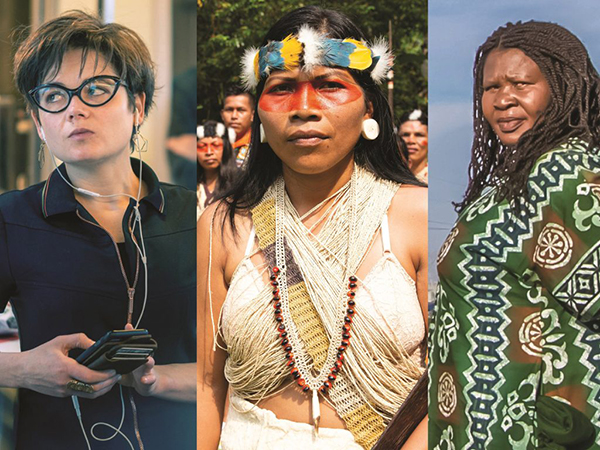
In honor of Women’s History Month and International Women’s Day, the Goldman Environmental Foundation is celebrating three Goldman Prize winners who’ve made formidable contributions to the fight against climate change. These three women, each of whom sought to protect the environment in different ways, are a powerful reminder that climate change isn’t a problem with a single solution. There are innumerable ways to make meaningful change—and each one of them counts. Read more.
Marianna Limas, Social Media Manager
Nilda Rivera, Partnership and Events Manager |
|
|